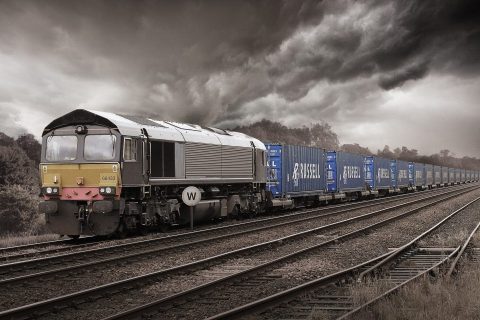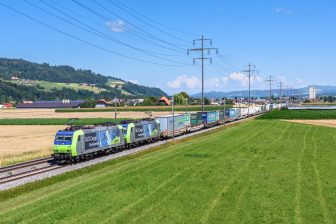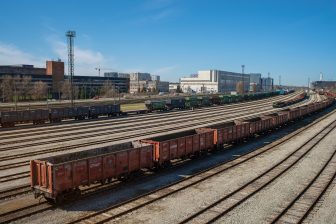
UK’s 5-year plan approved, track access charges rise
The Office of Rail and Road (ORR) in the UK has approved the five-year plan of Network Rail, promising to inject 35 billion British pounds to improve and modernise the railway system. The investments will lead to faster train paths and reduced delays. However, an increase in track access charges from 2021 could affect the cost-effectiveness of the British railway, says the Freight and Transport Association (FTA), which speaks for the UK’s logistics sector.
The five-year plan known as Control Period 6 (CP6) will commence on 1 April next year and includes planned expenditure on operations, maintenance and renewals, which represents a 25 per cent increase compared to the current five-year plan. Around 24.3 billion British pounds will be utilised to maintain (7.7 billion) and refurbish (16.6 billion) the existing railway systems.
Deterrent for freight
“The increased spending will improve the work of Network Rail’s System Operator, which ensures that freight can move seamlessly across the national rail network. This should develop and release faster train paths for freight to help increase productivity, while the 17 per cent increase in renewal works will reduce infrastructure failures, which often delay freight en route”, said Elizabeth de Jong, Director of Policy at FTA.
“However, the introduction of increased charges for the use of the network could act as a deterrent for businesses looking for alternatives to road freight. At this time of economic uncertainty and challenging trading conditions, an increase of this size should have been avoided.”
Track access charges
The five-year plan includes a recommendation for a charge increase after a two-year freeze. This means that over the final three years of the five-year control period the charges will rise. According to FTA, this will generate an increase in the total variable charges over CP6 of ten per cent for freight in real terms, with further increases to come in the subsequent control period unless there is a dramatic increase in the efficiency of Network Rail in the longer term.
The interest group states that unless these price increases are alleviated, the cost-effectiveness of UK’s railway is to be jeopardised. “Rail’s cost base must reduce sooner if it is to win market share from road and achieve growth. Frustratingly, ORR knows that further efficiencies are possible – while the ten per cent efficiency improvement over the five year period is positive, ORR also acknowledges that ‘there was some evidence that Network Rail could go further on efficiency’ – and this is something our members would be keen to see actioned.
Ability to pay
Earlier, Professor Chris Nash, who has extensive experience of research in the field of railway economics, expressed concern over the plans. “I believe that a big increase is potentially dangerous and could harm the position of rail in the markets where it is applied. That could impact on freight, although there would still be an ability to pay test, and it is really how that test is applied that would determine whether freight faced much higher charges or not”, he said.
According to de Jong, the government’s regulator has missed an opportunity to boost use of the rail sector, at a time when the logistics industry is being asked by government to lower their carbon emissions and therefore seeking alternatives to traditional HGVs for the transportation of goods and services.
Safeguard rail
“We are pressing the Secretary of State and Scottish ministers to consider their willingness to safeguard the place of rail freight within the UK supply chain,” she continues. “This is vital to keep rail cost-effective and therefore avoid further gridlock on our roads, which would also put at risk the carbon reduction targets set for road haulage.
“Rail has a huge part to play in keeping Britain trading as efficiently and effectively as possible as we move into a post-Brexit world, and the recommendations should create a workable framework in which the sector can continue to flourish.”





